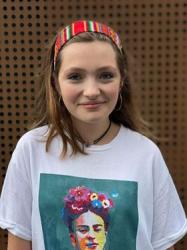
A proposal to erect a memorial to Hans Jónatan, the first known Black settler in Iceland, has been presented to Parliament.
Vilhjálmur Bjarnason of the conservative Independence Party put forward a bill to construct a memorial in Djúpivogur to Hans Jónatan, a Black man who emigrated from Denmark to Iceland in order to escape slavery.
The proposal comes in response to worldwide protests following the brutal murder of George Floyd in Minneapolis, including a recent Black Lives Matter demonstration in Reykjavik attended by around 4,000 Icelanders.
“The memorial will first and foremost be a call for freedom, which is the most noble of all human rights and must never be forgotten”, according to the bill.
Who was Hans Jonatan?
Hans Jónatan was born into slavery in 1784 on a sugar plantation on St. Croix in the Danish Virgin Islands. His mother, Emilia Regina, was a Black woman, enslaved by the Schimmelmann family, and his father is unknown, but is believed to have been Danish. Hans moved to Copenhagen as a child to live in the Schimmelmann family home.
Hans was granted freedom as recognition for his service in the Battle Of Copenhagen, but in a landmark Danish court case, the court ruled in favour of the Schimmelmann family’s claim to ownership over him. In 1802, in the aftermath of this legal defeat, Hans escaped slavery by emigrating to Iceland – the details of this extraordinary journey are unclear.
Hans married Katrín Antoníusdóttir from Hamarsfjörður and settled in the eastern fishing village of Djúpivogur, working as a trader and farmer. According to local lore and the parliamentary bill, Icelanders welcomed Hans and he faced little discrimination.
In 2018, deCODE led a study on Hans’ DNA, using genetic information from 182 of his descendants. Scientists were able to reconstruct around 38% of Hans’ mother’s DNA, and genome sequencing revealed that Hans’ DNA most closely matched that of people living in Benin, Nigeria and Cameroon.
Note: Due to the effect the Coronavirus is having on tourism in Iceland, it’s become increasingly difficult for the Grapevine to survive. If you enjoy our content and want to help the Grapevine’s journalists do things like eat and pay rent, please consider joining our High Five Club.
You can also support us by checking out our shop, loaded with books, apparel and other cool merch, that you can buy and have delivered right to your door.
Buy subscriptions, t-shirts and more from our shop right here!

















